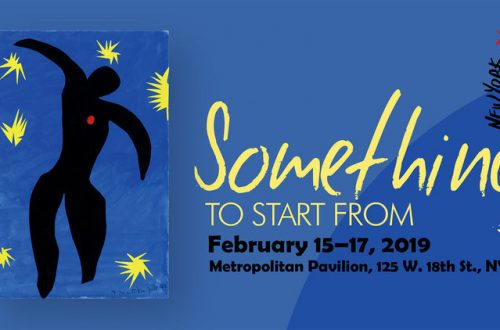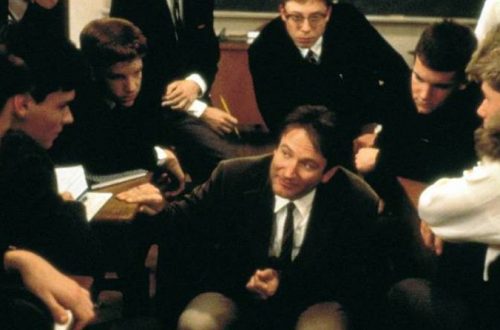by Jon Balsbaugh
Be watchful, and strengthen the things which remain, that are ready to die: for I have not found thy works perfect before God.
— Revelation 3:2
On October 26th, 1963, Bob Dylan performed “The Times, They Are A-Changin’” for the first time in New York’s Carnegie Hall. “A Hard Rain’s A-Gonna Fall” and “Blowin’ in the Wind” were also in the set. And he closed with “When the Ship Comes In,” a song he had performed with Joan Baez only a few months earlier at the March on Washington, where Martin Luther King, Jr. would later deliver his “I Have a Dream” speech.
It was a truly apocalyptic evening.
‘Apocalypse’ has come to be associated with destructive, end-of-the-world scenarios, but the Greek word apokálypsis literally means something more like an “uncovering” or “revelation.” Apocalyptic literature, films, or songs are not primarily about the future. They offer a way of reading the present. And in October of 1963, the twenty-two-year-old Dylan was announcing that we were on the verge of something significant.
Oh, the time will come up
When the winds will stop
And the breeze will cease to be breathin’
Like the stillness in the wind
Before the hurricane begins
The hour that the ship comes in
In gospel terms, the world had arrived at a definitive moment that would upend the old way of doing things.
The line it is drawn, the curse it is cast
The slow one now, will later be fast
As the present now, will later be past
The order is rapidly fadin’
And the first one now will later be last
For the times they are a-changin’
Something was happening and Dylan was right in the midst of it.
Then, just thirty days after the concert at Carnegie Hall, the news came that John F. Kennedy had been shot and killed in Dallas, Texas.
“What it means,” Dylan lamented at the time, “is that they are trying to tell you ‘Don’t even hope to change things.’ If you try to put yourself up against the forces of death … forget about it, you’re done for.” Something new was at work. Something more difficult to read. The next night, Dylan opened a concert in upstate New York with “The Times They Are A-Changin.’” He would later tell his biographer Anthony Scaduto, “I know I had no understanding of anything. Something had just gone haywire in the country and they were applauding the song. And I couldn’t understand why they were clapping, or why I wrote the song. I couldn’t understand anything. For me, it was just insane.”
Following Kennedy’s assassination, cracks began to appear in the new American idealism. The Vietnam War dominated the national consciousness. Communal movements became tainted by association with cults, brainwashing, and violence. By 1966 (the same year a motorcycle accident would take Dylan himself out of the public eye), Timothy Leary famously announced that it was time to “Turn on, tune in, drop out.” The ‘Summer of Love’ may still have been on the horizon, but so were the 1968 Democratic National Convention, more assassinations, the Manson Family murders, and the disastrous Altamont Free Concert.
Dylan’s music, too, began to shift. The clear-eyed optimism that characterized his music in 1963 all but disappeared. His next album, released less than a year later, was appropriately titled Another Side of Bob Dylan. On that album, “My Back Pages” includes the strange refrain for someone still in his early twenties: “Ah, but I was so much older then, I’m younger than that now.” And it was on a road trip in 1964, that he penned “Mr. Tambourine Man,” his beautiful, weary wish to forget.
Take me disappearin’ through the smoke rings of my mind
With all memory and fate driven deep beneath the waves
Let me forget about today until tomorrow.
In many ways that wish was granted. The folk music and protest song crowd openly rejected his new turn. And Dylan slowly began to disappear from the imagination of the general public. His work became more personal and poetic, less accessible, and less directly ‘political.’ The songs did continue to reveal the times to some extent, but those times were far less straightforward.
For those who continued to follow him, though, Dylan’s music also started to become a serious, sustained attempt to wrestle with more timeless concerns of fate, mortality, human dignity, injustice, sacrifice, sin, redemption, and so forth — not in the abstract or philosophical sense but in terms of lived experience. This takes shape in the myriad voices with which Dylan speaks. It is revealed in the stories he tells of characters (historical, mythic, and otherwise). Quinn the Eskimo, Rubin Carter, The Joker, The Thief, Joey Gallo, the Man in the Long Black Coat, Mr. Jones, Billy the Kid, Lily, Rosemary, and the Jack of Hearts. And it comes to life in the words themselves, words that find their way to the sacred in the ordinary. Like Shakespeare’s plays, Dylan’s songs taken as a whole somehow manage to capture the universal human condition in particular stories, characters, and even lines.
Bob Dylan’s career now spans seven decades. Until last year, though, all he had released since 2012 had been three albums covering old songs from the Great American Songbook. Though he has continued to tour, paint, sculpt, and even produce whiskey, most observers thought his songwriting days were over.
Then, in March, along with a short note of gratitude to his fans, he unexpectedly dropped a 17-minute track featuring the Kennedy assassination and its place in the American consciousness. “Murder Most Foul,” captured the public imagination more widely at least than anything Dylan had written in a very long time. Surprisingly it even became his first-ever number one Billboard hit.
More importantly, though, a new kind of apocalypse was at work.
Whatever the song might be for others, Dylan was clear in a recent interview that “Murder Most Foul” is not about the past but the present. “To me it’s not nostalgic. I don’t think of “Murder Most Foul” as a glorification of the past or some kind of send-off to a lost age. It speaks to me in the moment. It always did, especially when I was writing the lyrics out.”
For a number of years now, in fact, Dylan has been reading the signs of the times more explicitly than at any point since his early career. The prophetic spirit has been stirring again, though in a very different key.
The Kennedy assassination as presented in this song is not, for Dylan, a random historical event, but one that inaugurated a new and darker time that we still find ourselves in:
They killed him once, they killed him twice
Killed him like a human sacrifice
The day that they killed him, someone said to me, “Son,
The age of the anti-Christ has just only begun.”
That night in 1963 at Carnegie Hall Dylan was a prophet from across the Jordan, crying aloud like John the Baptist, “Repent, for the kingdom of heaven is at hand. In the wilderness prepare the way for the LORD; make straight in the desert a highway for our God.”
Come mothers and fathers
Throughout the land
And don’t criticize
What you can’t understand
Your sons and your daughters
Are beyond your command
Your old road is rapidly agin’
Please get out of the new one
If you can’t lend your hand
For the times they are a-changin’
In this new prophetic hour, however, Dylan is no longer announcing entrance to the promised land or the coming of a new age.
Reading the signs in 1963 led Dylan to proclaim that a great ship was about to come in. Reading today’s signs seems to have brought him to the conclusion that whatever that ship may have been, it is sinking — and that it is almost certainly too late to save it. Dylan has traded the camel’s hair and leather belt of John the Baptist for the tears of Jeremiah. What we should be experiencing now is not anticipation of a bright future but the acceptance of judgment and exile.
This new perspective is most clear in two other relatively recent songs.
The first is the title track of 2012’s Tempest — a 14-minute waltz chronicling the sinking of the Titanic in distinctively Dylanesque style. The lyrics intermingle historical events, characters and scenes from James Cameron’s 1997 film and Dylan’s own mythical framework. A watchman dreams throughout the ship’s slow descent. Chandeliers sway. And the language of apocalyptic judgment is strewn throughout in lilting quatrains such as:
The veil was torn asunder
‘Tween the hours of twelve and one
No change, no sudden wonder
Could undo what had been done
And at the end, we find the captain alone with the realization that all is lost:
In the dark illumination
He remembered bygone years
He read the Book of Revelation
And he filled his cup with tears.
He knows that neither he nor the ship will ever see the shore. And of those left behind after the disaster, trying to make sense of it all, Dylan writes, “They waited at the landing, and they tried to understand. But there is no understanding on the judgment of God’s hand.”
The second of Dylan’s great apocalypses of this millennium is the 8-minute Civil War track “‘Cross the Green Mountain,” written and recorded for the 2003 Civil War film Gods and Generals. While “Tempest” frames its apocalyptic vision with the sinking of the Titanic, “‘Cross the Green Mountain” makes use of a futile war that devastated a nation for similar purposes. It, too, is visionary in spirit, opening with a direct allusion to the Beast from the book of Revelation:
I crossed the green mountain, I slept by the stream
Heaven blazin’ in my head, I dreamt a monstrous dream
Something came up out of the sea
Swept through the land of the rich and the free
In the song, we find ourselves placed at “the last day’s last hour of the last happy year.” Stars fall. Blasphemy is on every tongue. As in “Tempest,” so here. “All must yield to the avenging God.”
Dylan’s prophetic vision of the times is not a happy one. We are left on the losing side of the war, on a ship that has already sunk, and with all judgments having already been passed. As with Jeremiah’s message to Israel, there is no easy comfort, no escaping either the evil that is here or the worse that is to come. But Jeremiah’s message was not a nihilistic proclamation of doom and neither is Dylan’s.
At the heart of Jeremiah’s message was a great word of hope. Though much is to be lost in exile, the promise is clear:
Again you will take up your timbrels
and go out to dance with the joyful.
Again you will plant vineyards
on the hills of Samaria;
the farmers will plant them
and enjoy their fruit.
There will be a day when watchmen cry out
on the hills of Ephraim,
‘Come, let us go up to Zion,
to the Lord our God.
This same spirit of hope animates even the darkest of Dylan’s reflections as well.
The last seven minutes of “Murder Most Foul” are an extended request for Wolfman Jack, the famous now departed DJ of the 1960’s, to keep playing all the old songs. Though “Tempest” ends with the cataclysmic death of 1600 people, along the way it tells stories of personal sacrifice, human dignity, and love. “‘Cross the Green Mountain” has a similar underlying optimism. “The world is old,” the speaker concedes, “The world is gray. Lessons of life can’t be learned in a day.” But, he adds, “I watch and I wait and I listen while I stand, to the music that comes from a far better land.” World-weariness is real, but it gives way to the hope of another more permanent world. “Pride will vanish and glory will rot, but virtue lives and cannot be forgot.”
Bob Dylan turned eighty years old last week. In his own last days, might we be stumbling headlong into an age of exile? Perhaps so. But if that is the case, even in the midst of ravaged lands, death, and destruction, according to him our duty remains the same:
“Serve God and be cheerful. Look upward beyond, beyond the darkness that masks the surprises of dawn.”
Though he was awarded the Nobel Prize for Literature, Bob Dylan’s medium is music, and quotations on the written page don’t do justice to his work. To listen to the songs themselves, click on the links below for YouTube versions of each song mentioned in this article or click here for a Spotify playlist of the same.
“The Times, They Are a Changin’”
“When the Ship Comes In”
“A Hard Rain’s A-Gonna Fall”
“Blowin’ in the Wind”
“My Back Pages”
“Mr. Tambourine Man”
“‘Cross the Green Mountain”
“Tempest”
“Murder Most Foul”
For a deeper dive, another Spotify user has put together a playlist of songs and artists mentioned in “Murder Most Foul.”

Jon Balsbaugh is the founder and chief editor of Veritas Journal and owner and operator of Kairos Educational Consulting. Though his soul still imagines itself in the Pacific Northwest of his childhood, he now lives in South Bend, IN. He and his wife have five children. Mr. Balsbaugh has been involved in classical education for over twenty-five years. In addition to reading, writing, and thoughtful contemplation of ideas, he enjoys seeing the world through the lens of his three primary hobbies: fly fishing, foraging, and photography.
.
Header Image: “Jeremiah Lamenting the Destruction of Jerusalem,” 1630, by Rembrandt (public domain)






2 Comments
Richard Morgan
Thank you Jon for the thoughtful and illuminating post on Dylan’s prophetic songs. I hope you are enjoying Rough and Rowdy Ways which seems to rest firmly in this tradition! Very best.
Pamela Brown
Thank you for your excellent and thoughtful article. I just wish to add a point —
I think many of us were struck by the similarity of the events of this past Jan 6 to Dylan’s words in The Times They Are a-changin’…
How could he possibly have had a sense of this in 1963, I wondered?
Come senators, congressmen
Please heed the call
Don’t stand in the doorway
Don’t block up the hall
For he that gets hurt
Will be he who has stalled
There’s a battle outside and it is ragin’
It’ll soon shake your windows and rattle your walls
For the times they are a-changin’